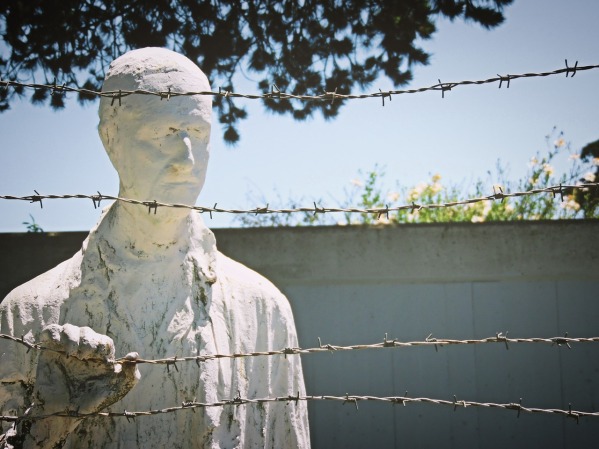From the Inside-Out
I’ve written about this before on this blog, but it may well be worth repeating. For anyone who is seeking to learn more about their attractions to the same gender, or if they are having questions about their gender identity, the key factor for benefiting from any kind of counseling is their own motivation. If you go to counseling to appease someone else – a parent or guardian or someone else you look up to, or if you go because you want to be “normal,” or to find some kind of trick that will instantly make these feelings or desires or questions go away – you will likely not find counseling helpful.
Every reputable individual offering counseling – whether they are a professional counselor or spiritual leader – will know and understand this. It is a basic truth which applies to all kinds of therapy for all kinds of reasons – if an individual does not want to be there, counseling is not likely to succeed. We cannot force someone into making decisions about their spirituality or sexuality or gender, nor should we attempt to. A good counselor will ask someone about their motivations or reasons for coming to them and start there.
So what are some examples of good motivations? Curiosity – honestly wanting to learn more about yourself, what you’re experiencing, and how that relates to your faith. Or, perhaps if you already have a good understanding of your faith, wanting to learn about how to navigate life with these desires and feelings in a way that is consistent with your beliefs. Seeking contentment, peace, understanding, practical help for building good relationships with others – these are all excellent motivations.
From the Outside-In
Years ago I wrote to a network ministry organization about what outreach to young people who were struggling with same-gender attractions could look like. I suggested that counseling for parents who come with concerns about their children be mandatory, and optional for the youth. The reason was due to the primary importance of one’s own internal motivation in benefitting from any kind of counseling. It is far too common for parents to want to try to do something to get their child through or past this experience before their child really has a grasp of what it is they are experiencing. And parents will need support over the long haul in learning how to wrestle with their own temptations to control others, over their own fears and grief, and in coming to a place where they can love their child right where they are, instead of always pushing them to be someone they want them to be.
We cannot force someone to want to seek to reconcile their faith and their attractions or view of gender. Although God can give us the will to want to do so…we read about this in Ezekiel chapter 36, verses 25-27:
“Then I will sprinkle clean water on you, and you will be clean; I will cleanse you from all your uncleanness and from all your idols. Moreover, I will give you a new heart and put a new spirit within you, and I will remove the heart of stone from your flesh and give you a heart of flesh. I will put My Spirit within you and cause you to walk in My statutes, and you will keep My ordinances and do them.”
It has always blown me away that the Lord will stoop so low as to move us to love Him and to follow Him. But He will do even this, and we can pray for ourselves and for those around us to be so moved by Him. Recently, I read an article by Francis Chan about his concern for his high school friend who did not know the Lord. Every time his friend would come to mind, Francis would pray for him.
Apart from God’s working, our begging someone to see the beauty of Christ is as pointless as begging a blind man to enjoy the beauty of a sunset. Do we direct our begging, first and foremost, to God?
Jesus tells us the parable about a persistent widow to remind us that we “ought always to pray and not lose heart” (Luke 18:1). There is tremendous power in perseverant prayer. God is not like us; he is not bothered by his children asking for the same thing over and over. He is pleased by the faith demonstrated when we pray and pray for someone to be saved.
When I love particular people deeply, it’s natural to persistently pray for them. I think it would actually require more effort to refrain from praying for them. My best friend in college decided that he didn’t want to follow Jesus. It broke my heart. Ken and I went our separate ways, and our lives went in opposite directions. I never stopped praying for him though — I couldn’t. Whenever Ken’s name would pop into my mind, prayer was my natural reflex.*
God can and does pull people to Him who are in the midst of living in same-gendered relationships in all kinds of circumstances…
A self-identified gay activist in a random conversation at a coffee shop.
A tenured Professor of English with a specialization in queer theory at Syracuse Univ., researching for her book critiquing the Religious Right who was invited to dinner at a pastor’s home.
A woman in a lesbian relationship while watching TV on her sofa at home.
A woman who identified as a lesbian playing softball on a church team.**
I know of examples of people whose lives were falling apart, caught up in alcohol or drug abuse or heartbroken after their same-gendered relationships had broken up – and of people whose lives seemed to have all come together in the gay relationship of their dreams, yet who felt empty inside. It doesn’t matter what your life is like…it’s possible for God to reach in and move you to leave everything behind as a result of the love of Christ.
We can walk alongside another person as they learn and make decisions about their own lives. We can be encouraging, supportive and loving, but we cannot make those decisions for them. External factors can impact our internal motivation – having someone willing to listen and be there with you in friendship and love can mean a great deal. Let us learn to reflexively pray and ask God to move our own hearts and the hearts of those around us toward Him.
* https://www.desiringgod.org/articles/no-soul-is-too-far-gone
** Respectively:
David Bennett: https://www.eternitynews.com.au/good-news/a-gay-rights-activist-leaves-his-old-life-behind/
Rosaria Butterfield: https://www.youtube.com/watch?v=0KbOAXxz77w
Jackie Hill Perry: https://www.youtube.com/watch?time_continue=2&v=ZLAe_JBvVwg
Christine Sneeringer: https://www.youtube.com/watch?v=nPmeR28UfWY
 Having served as an assistant to a surgeon in Germany during WWI, Dietrich von Hildebrand experienced the political turmoil within his country in the wake of their defeat. While we can only look back on this time in history with a clear view of Hitler as a demagogue who brought turmoil across Europe and the world, those who lived through his rise to office did not have that advantage. Early on, Hitler did not look like the Hitler we now know. But Dietrich quickly saw through his schemes to what would become a destructive course of action by this man, and became a vocal opponent of Hitlerism. As many people, even Christians, missed these early signs and eventually allowed Hitler to rise to power, it is good for us to learn from what Dietrich was able to discern.
Having served as an assistant to a surgeon in Germany during WWI, Dietrich von Hildebrand experienced the political turmoil within his country in the wake of their defeat. While we can only look back on this time in history with a clear view of Hitler as a demagogue who brought turmoil across Europe and the world, those who lived through his rise to office did not have that advantage. Early on, Hitler did not look like the Hitler we now know. But Dietrich quickly saw through his schemes to what would become a destructive course of action by this man, and became a vocal opponent of Hitlerism. As many people, even Christians, missed these early signs and eventually allowed Hitler to rise to power, it is good for us to learn from what Dietrich was able to discern.

 It’s still difficult for me to grasp – Donald Trump is going to be our next President. Of the United States. Of the choices running for office, I favored Bernie Sanders. I was going to vote for him in protest against the way that the two-party system has failed to represent the middle class, forming an oligarchy rather than a democracy…until Donald Trump actually won the Republican nomination. Then I was one of the apparently few Christians who voted for Hillary Clinton on Nov. 8th. In vain, as I live in a state that Trump dominated during the election, but at least I can sleep a little better knowing that I personally did not contribute to this vile man gaining power.
It’s still difficult for me to grasp – Donald Trump is going to be our next President. Of the United States. Of the choices running for office, I favored Bernie Sanders. I was going to vote for him in protest against the way that the two-party system has failed to represent the middle class, forming an oligarchy rather than a democracy…until Donald Trump actually won the Republican nomination. Then I was one of the apparently few Christians who voted for Hillary Clinton on Nov. 8th. In vain, as I live in a state that Trump dominated during the election, but at least I can sleep a little better knowing that I personally did not contribute to this vile man gaining power.